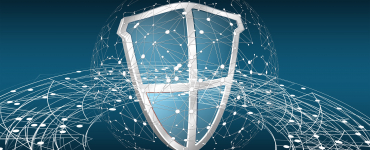raIn the eco IT Security Study 2021, 20 percent of the 175 IT security experts stated that their company or their customers had been the target of a ransomware attack at least once in the past year. How will the security situation change in the future due to artificial intelligence, machine learning and mobile working? We talk about this in an interview with Walter Haas, Chief Technology Officer (CTO) at Huawei Germany. He will speak at the Internet Security Days 2021 on the current IT security situation.
Mr Haas, how do you assess the current security situation for companies on the German market?
Haas: The IT risk for companies in Germany remains high. In addition to the accelerated digitalisation of processes, the Covid-19 pandemic has also meant that organisations have had to deal with new IT issues. How do we secure data transfers between employees and which programmes do we use to conduct video teleconferences within the company and with customers? This learning process has already led to a better internal understanding of IT security in many companies. Nevertheless, it can be said that ransomware and malware in particular still represent one of the greatest risks for companies and organisations – regardless of their size and financial resources.
What new security technologies will become part of our lives in the next five years?
Haas: Artificial intelligence and machine learning will be an important building block in effective IT security of the future. This is also related to the fact that more and more digital content and services are being moved to cloud data centres. More devices are connected and networks have a larger attack surface than ever before. AI therefore has significant implications for computer security: It can be used to build new systems that enable the detection of malware and network attacks that would previously have gone undetected. On the other hand, AI can also be used to carry out new types of attacks. In addition to technological tools, we must therefore also improve cooperation between the public and private sectors in order to set uniform standards for security. Therefore, cooperation between companies, but also with the German Federal Office for Information Security (BSI), will become even more important in the future.
What are the challenges associated with the introduction of 5G technology and how can companies overcome these challenges?
Haas: Higher data rates, faster connections, less latency, increased security and reduced energy consumption – these are some of the key benefits of the new 5G mobile communications standard. We can already see that the technology is increasingly being used in the industrial environment in so-called campus solutions. Large companies will probably be more able to build their own 5G campus according to their wishes and requirements and to consider the relevant security architecture in parallel. However, if we want to make digitalisation a success for small and medium-sized enterprises as well, we need the right offers for these industries. New providers will establish themselves who will answer the technical and security-related questions together with the companies: Do I build the mobile network completely myself at my location, or do I use the public network operators? Which hardware offers me the most benefit for my campus solution? Do I store my data on-site or do I use a cloud service provider for my applications?
Thank you very much for the interview, Mr Haas!
At the Internet Security Days 2021 on 16 and 17 September, Walter Haas will give a keynote speech on the current security situation. You can find information and tickets here.




